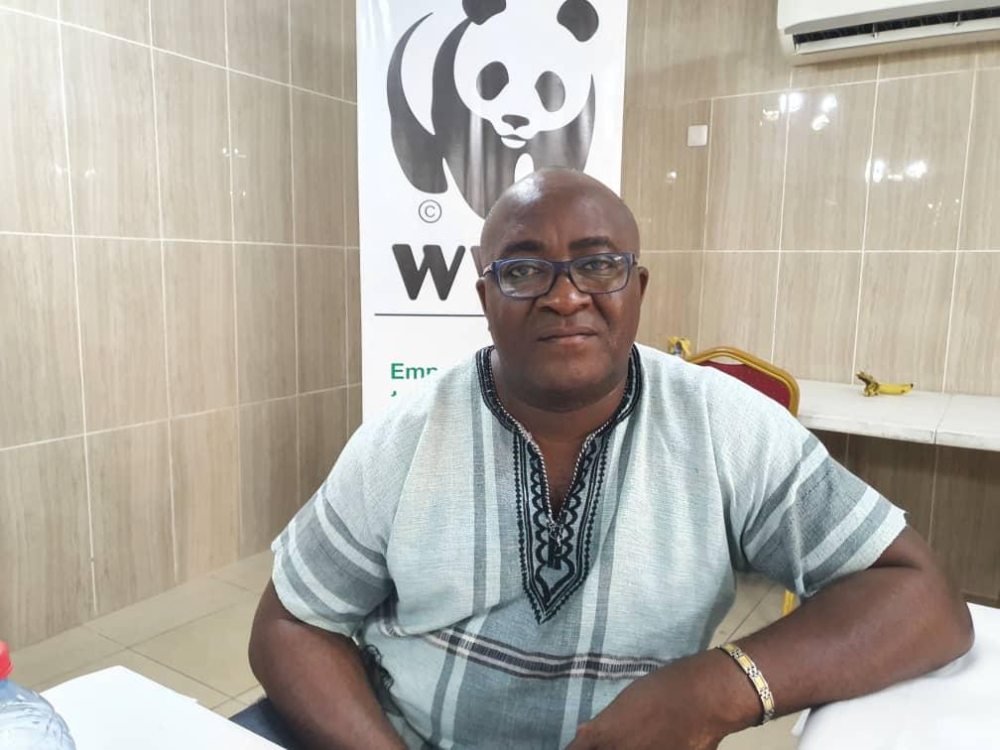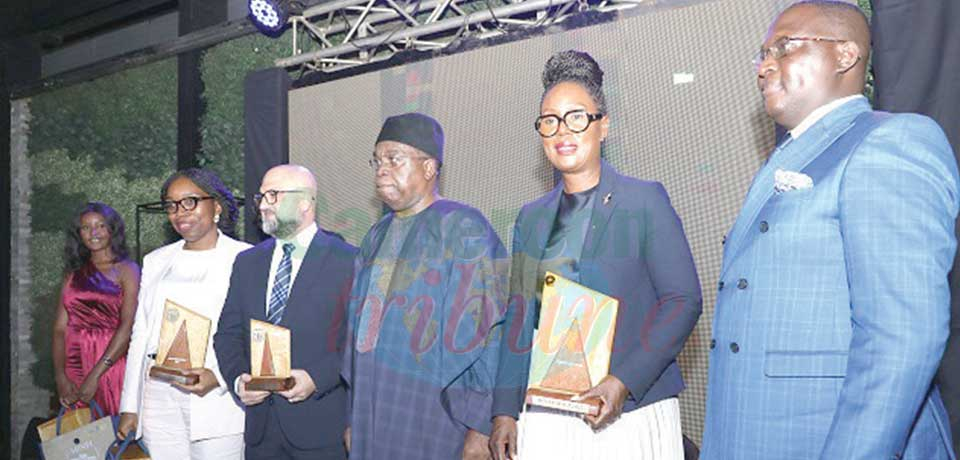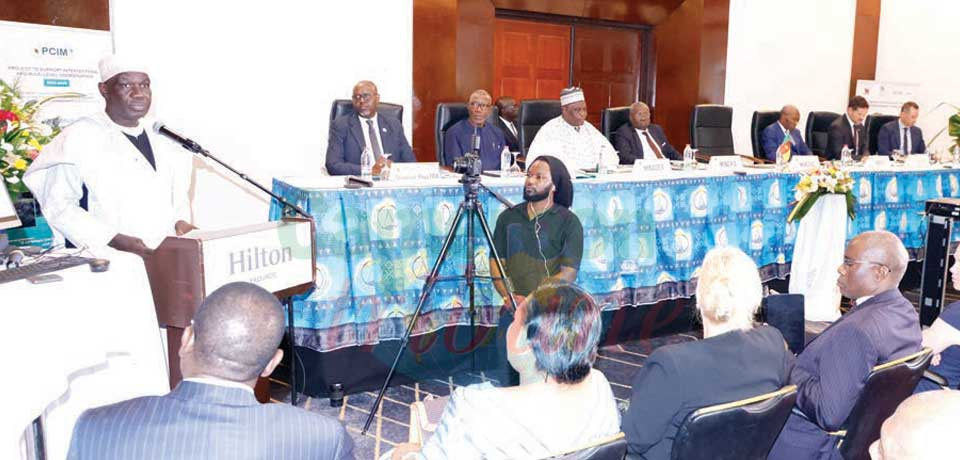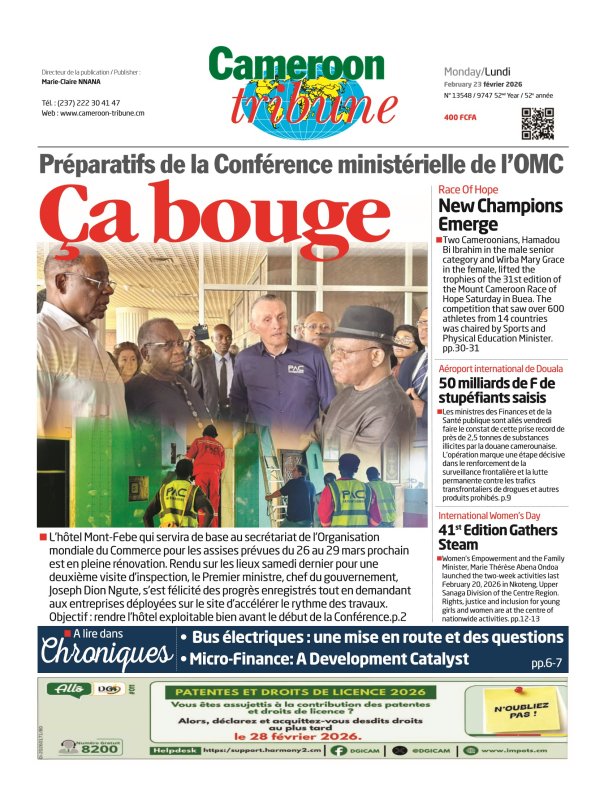Interview: “Forests Offer The Main Solution To Climate Change”
- Par Kimeng Hilton
- 03 Jun 2022 09:06
- 0 Likes

Gilles Etoga, Senior Policy and Conservation Coordinator, World Wide Fund for Nature, WWF Cameroon, explains the advent, evolution and gains of TRIDOM.
*This report was realised with the support of Pulitzer Centre and the Congo Basin Rainforest Journalism Fund.
Why was TRIDOM created?
Tri-national Dja-Odzala-Minkebe, TRIDOM, is a cross-border conservation landscape between Cameroon, Gabon and Congo-Brazzaville. It was created in 2005 following the decision by leaders of the three countries to jointly manage about 18 million hectares of landscape. Biodiversity stakeholders were also of the view that management of the landscape could not be carried out individually by each State. The agreement was informed by the fact biodiversity (forests and wildlife) do not know any borders.
TRIDOM comprises 11 protected areas. They are Boumba-Bek National Park, Nki National Park, Dja Wildlife Reserve, Ngoyla Wildlife Reserve and Mengame Gorilla Sanctuary in Cameroon. Mwangne National Park and Minkebe National Park in Gabon. And Odzala National Park in Congo-Brazzaville. TRIDOM is part of the world’s second largest tropical rainforest – the Congo Basin – after the Amazon. TRIDOM makes up 10 per cent of Congo Basin forests.
Forests offer the main solution to climate change challenges by absorbing carbon emissions and protecting water sources and soils. We have a strong reason to protect our forests because they are part of each nation’s development plan. So, everything must be done to ensure that logging is carried out sustainably.
What was the state of biodiversity management on the borders between Cameroon, Gabon and Congo-Brazzaville before TRIDOM?
The management of protected areas was not coordinated. Given that elephants cross borders at will, any conservation initiative undertaken in one country inevitably affects the neighbour. This was the case with illegal logging and poaching. Poachers moved from one country to another, and when arrested, defended themselves by saying they were foreigners. Conservation stakeholders from the three countries reasoned that it was better to carry out joint activities to contain the phenomenon.
The management of biodiversity before the advent of TRIDOM was therefore not so sustainable. To achieve sustainable biodiversity management, you must plan over time in a protected area, carry out impact assessment of eventual activities, put in place appropriate mitigation plans, etc.
What is the situation of biodiversity management in TRIDOM today?
There are joint anti-poaching patrols between countries and we ensure each country is on the same level of biodiversity management planning.
What of the interests of local people?
The focus today is on inclusive conservation, which puts man at the centre of all conservation efforts. Every activity must assure improvements in the livelihoods of local community people. In Cameroon, about half of logging royalties is allocated to local councils and communities. We also have community forests, council forests, community hunting zones and sports hunting zones. Inclusive conservation is already reality in Cameroon, though there are improvements to be made.
After 17 years of existence, what does TRIDOM have to show?
The dividends of conservation cannot be quantified in terms of money. Biodiversity plays a major role in food supply because people live on forests. Forests host quality drinkable water and assure clean, fresh air.
On the Cameroonian side of TRIDOM, we have succeeded in putting in place sustainable forest management practices based on the understanding that you do not have to cut down all trees in order to carry out logging. Good practices also ensure that our forests are not lost. Logging concessions last a minimum of 30 years. If they are not sustainably exploited, concessionaires will soon have no trees left.
Before the advent of TRIDOM, elephant poaching was rife because of high demand for ivory on the international market. Some years ago, 11,000 elephants were killed in Minkebe National Park in Gabon. Wildlife surveys undertaken in Nki and Boumba-Bek National Parks some years ago showed we lost about 70 per cent of the elephant population in less than 10 years. With the strategy put in place by TRIDOM, poaching is now on the decline.
We plan to carry out wildlife surveys in Nki and Boumba-Bek National Parks in 2023 to determine the present populations of various species. Today, we have an estimated population of 1,000 elephants in these two parks; with 3,000 gorillas. The Cameroonian side of TRIDOM has great wildlife potentials. On the other hand, community forests have become main sources of revenue to local communities in TRIDOM Cameroon. The money is used in improving housing and supporting education. Women have been organised to collect Non-Timber Forestry Products, NTFPs and have been connected with buyers to better market their produce.
WWF has also set up the Green Cocoa scheme. The objective is to rejuvenate cocoa farms by replacing old trees without having to cut down forests to expand farms. This is achieved by introducing high-yielding cocoa varieties. ...
Cet article complet est réservé aux abonnés
Déjà abonné ? Identifiez-vous >
Accédez en illimité à Cameroon Tribune Digital à partir de 26250 FCFA
Je M'abonne1 minute suffit pour vous abonner à Cameroon Tribune Digital !
- Votre numéro spécial cameroon-tribune en version numérique
- Des encarts
- Des appels d'offres exclusives
- D'avant-première (accès 24h avant la publication)
- Des éditions consultables sur tous supports (smartphone, tablettes, PC)














Commentaires